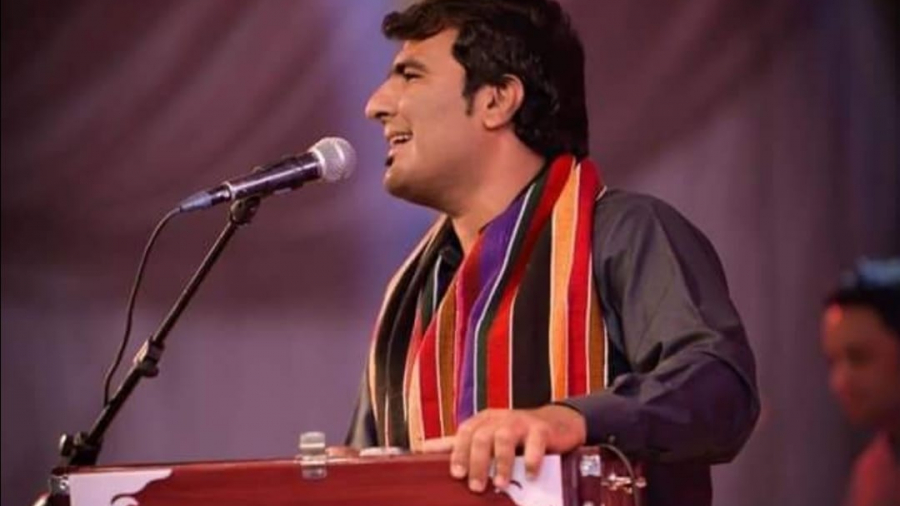پاکستان بنیادی انسانی حقوق کے تحفظ کے لیے پرعزم
تحریر: محمد اسماعیل
پاکستان بنیادی انسانی حقوق کے تحفظ کے لیے پرعزم ہے اور ان حقوق کی تکمیل کی ضمانت کے لیے پاکستان کی لگن سات اہم بین الاقوامی انسانی حقوق کے معاہدوں کی توثیق سے ظاہر ہوتی ہے۔
ملک کو درپیش بے پناہ رکاوٹوں کے باوجود، کئی اہم اقدامات اٹھائے گئے ہیں جو انسانی حقوق کے تحفظ اور فروغ کے لیے ریاست کی کوششوں اور عزم کی نشاندہی کرتے ہیں۔ قانون سازی کے حوالے سے یہ بات نہایت اہم ہے کہ گزشتہ 10 سالوں کے دوران مختلف قوانین بنائے گئے ہیں جس سے مخصوص گروہوں جیسے اقلیتوں، خواتین اور بچوں کے حقوق میں نمایاں بہتری آئی ہے۔
ایسے قوانین انسانی حقوق کے بڑے چیلنجز سے نمٹنے لیے پاکستان کی قانون سازی کے حوالے سے عزم اور عملی اقدامات کی عکاسی کرتے ہیں۔ ان حالیہ قوانین کے علاوہ، وفاقی اور صوبائی دونوں سطحوں پر انسانی حقوق کو پورا کرنے والے قوانین کا ایک بہت بڑا فریم ورک موجود ہے۔ یہ قواعد پاکستانی معاشرے کے تقریباً ہر طبقے سے متعلق ہیں۔ ان قوانین میں سے تقریباً 400 کا براہ راست اثر بین الاقوامی سطح پر اور آئین میں درج حقوق پر ہے جبکہ 800 کے قریب وفاقی اور صوبائی قوانین نچلی سطح پر انسانی حقوق سے متعلق ہیں۔
پاکستان بنیادی انسانی حقوق کو برقرار رکھنے کے لیے ثابت قدمی سے گامزن ہے اور ناصرف عام شہری کے حقوق کی پاسداری کرتا ہے بلکہ ریاست ان لوگوں کے حقوق کا بھی دفاع کرتی ہے جو سنگین جرائم میں قید ہیں جن میں دہشتگردی کے واقعات میں ملوث افراد بھی شامل ہیں۔ باجود اس کے یہ افراد دہشتگردی جیسے سنگین جرم میں ملوث ہونے کی بناء پر گرفتار ہوئے، ان کو قانون کے مطابق ہراست میں رکھا جاتا ہے۔
قانون کے مطابق، سیکورٹی فورسز کی کارروائیوں کے دوران پکڑے گئے تمام قیدیوں کو اعلان شدہ اور مطلع شدہ انٹرنمنٹ سینٹرز میں رکھا جاتا ہے، اور صوبائی حکومت کے نگران بورڈ ان کے مقدمات کا مستقل بنیادوں پر جائزہ لیتے ہیں۔
قیدیوں کے حقوق سے متعلق موجودہ قوانین کے علاوہ، حکومت پاکستان نے حال ہی میں جبری گمشدگیوں کو جرم قرار دینے کے لیے ایک بل بھی پیش کیا ہے، جسے حتمی منظوری کے لیے سینیٹ کو بھیجا جائے گا۔ ٹارچر، کسٹوڈیل ڈیتھ اینڈ کسٹوڈیل ریپ (روک تھام اور سزا) بل 2021، جسے اگست 2022 میں قومی اسمبلی سے منظور کیا گیا تھا، سینیٹ سے بھی منظور کر لیا گیا ہے۔
تاہم، لاپتہ افراد کے موضوع کا فائدہ اٹھاتے ہوئے، مخالفین، ناراض، اور ریاست مخالف عناصر مسلح افواج کے بارے اکثر غلط معلومات پھیلاتے ہیں۔
لاپتہ افراد کے کیسوں کی تحقیقات کے لیے قائم کی گئی متعدد کمیٹیوں اور کمیشنوں کے مطابق رضاکارانہ طور پر گمشدگیوں، ذاتی عناد اور فرار کو اس بڑھتے ہوئے مسئلے میں اہم عوامل قرار دیا گیا ہے۔
ایسا ہی ایک کیس 2019 میں سامنے آیا جب بظاہر ایک بلوچ ‘لاپتہ’ شخص کا نام کالعدم بلوچ دہشت گرد تنظیم نے پی سی گوادر، بلوچستان پر حملے میں ملوث حملہ آوروں میں سے ایک کے طور پر میڈیا سامنا لایا۔
احتجاجی کیمپوں کے دوران متعدد نسلی گروہوں نے حمال خان مری کو 2016 سے لاپتہ قرار دیا اور یہ بیانیہ سوشل میڈیا پر بھی پھیلایا گیا۔ انہیں انسانی حقوق کے کارکن کے طور پر مخاطب کیا گیا تھا تاہم مئی 2019 میں دہشت گردوں کے ایک گروپ نے پرل کانٹینینٹل ہوٹل گوادر پر حملہ کیا جس کے نتیجے میں ہوٹل کے 4 عام شہری جاں بحق ہوئے تھے، ایک نیوی کا سپاہی شہید ہوا تھا، جب کہ آرمی کے دو کیپٹن سمیت 6 افراد زخمی ہوئے تھے۔ ، دو بحریہ کے سپاہی، اور ہوٹل کے دو ملازمین زخمی ہوئے۔
اور انسانی حقوق کا نام نہاد کارکن، لاپتہ شخص حمال خان مری ان چار حملہ آوروں میں سے ایک تھا جو بعد میں سیکورٹی فورسز کے ایک آپریشن میں مارے گئے۔
اس طرح کے اور بھی کئی کیسز میڈیا نے رپورٹ کیے ہیں جن سے ثابت ہوتا ہے کہ لاپتہ افراد کے مسئلےکو بعض گروہ اپنے مفادات کے لیے بڑھا چڑھا کر پیش کرتے ہیں۔
حقیقت یہ ہے کہ لاپتہ افراد کے مبینہ مقدمات کو جبری گمشدگیوں پر انکوائری کمیشن کے ذریعے تیزی سے اور مؤثر طریقے سے نمٹا جا رہا ہے۔
دریں اثناء لاپتہ افراد، جبری گمشدگیوں کے کیسز پر کام کرنے والے بین الاقوامی اور قومی اداروں کی رپورٹس کے مطابق ان میں سے زیادہ تر مقدمات کو ریاست پاکستان نے حل کیا ہے۔
جنوری 2018 تک، سپریم کورٹ کے لاپتہ افراد کے کمیشن کے مطابق 2011 سے دسمبر 2017 تک کل 4,608 کیسز رپورٹ ہوئے جن میں سے 2,306 کیسز ٹریس کیے گئے جب کہ 411 کیسز قابل عمل نہیں ہوئے اور تقریباً 359 رپورٹ کیے گئے کیسز میں مطلوبہ معلومات کی کمی تھی۔ اس عرصے کے دوران کل 1,532 افراد لاپتہ ہوئے۔
دوسری جانب پاکستان میں اقوام متحدہ کے ورکنگ گروپ آن انفورسڈ انوولنٹری ڈسپیئرنس (UNWGEID) کی طرف سے رپورٹ کیے گئے 1444 کیسز میں سے 998 کیسز (٪70) حل کیے جا چکے ہیں جو کہ عالمی اوسط 21.48 فیصد (1980 سے ریکارڈ کیے گئے) سے کہیں زیادہ ہے۔ کمیشن کو رپورٹ کیے گئے تمام کیسز میں سے 1818 کا تعلق بلوچستان سے تھا جن میں سے 1461 کیسز نمٹائے جا چکے ہیں۔
اگر ہم لاپتہ ہونے کے واقعات کے تناسب کا موازنہ کریں، یا خاص طور پر، لاپتہ افراد کے کیسز، جن کی رپورٹ بین الاقوامی تنظیموں اور پاکستان میں داخلی کمیشنوں کے ذریعے کی گئی ہے، تو ہمیں معلوم ہوتا ہے کہ وہ تقریباً ایک جیسے ہیں۔ ان گمشدگیوں پر میں اقوام متحدہ کے ورکنگ گروپ آن انفورسڈ انوولنٹری ڈسپیئرنس اور پاکستانی کمیشن دونوں نے حل کیے جانے والے کیسوں کے یکساں تناسب کی اطلاع دی۔
یہ حقیقت اس شفافیت کو ظاہر کرتی ہے جس کے ساتھ ریاست پاکستان انسانی حقوق کی خلاف ورزیوں سے نمٹ رہی ہے، خاص طور پر لاپتہ افراد کے معاملے میں۔






